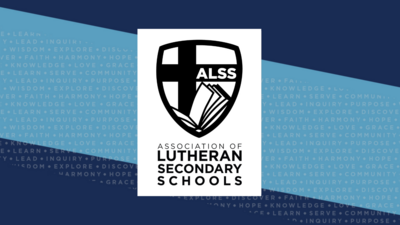Ethical Use of AI in Curriculum and Instruction

Artificial Intelligence (AI) is rapidly transforming the landscape of education, offering tools that can streamline lesson planning, personalize instruction and open new possibilities for student engagement. But with great potential comes great responsibility. As educators consider integrating AI into their classrooms, it’s essential to do so with care, integrity and a commitment to student well-being.
At its best, AI can serve as a powerful partner in curriculum development. Tools like ChatGPT, MagicSchool.ai and Diffit can help teachers brainstorm lesson ideas, generate age-appropriate content or differentiate materials for varying reading levels. These applications can save time and support creativity, allowing teachers to spend more energy on human connection and instructional delivery. However, it’s crucial to use AI as a supplement for teacher expertise, not a substitute. Human insight is still necessary to evaluate accuracy, ensure cultural relevance and adapt content to the unique needs of each classroom.
Differentiation is another area where AI shows real promise. Adaptive platforms can analyze student data and provide targeted practice based on skill gaps, giving learners more personalized feedback and teachers more insight into performance trends. For students with disabilities or language barriers, AI-driven tools like speech-to-text applications, multilingual glossaries or reading level adjusters can enhance access to curriculum. Yet, educators must take an active role in monitoring these tools to ensure they truly support learning rather than widen inequities or reinforce biases embedded in algorithms.
Alongside the benefits of AI come a host of ethical considerations. One of the most pressing is student privacy. Many AI tools collect large amounts of data to provide tailored recommendations or track progress, raising concerns about how that information is stored, used or potentially shared. Educators should be well-versed in regulations like COPPA and FERPA and ensure that the tools they use comply with those guidelines. Asking questions about data policies, encryption standards and vendor transparency is a vital part of responsible tool selection.
Bias is another critical issue. AI systems are trained on existing datasets, which may contain inaccuracies or reflect societal inequities. If left unchecked, these biases can manifest in AI outputs, whether through stereotyped content, unequal learning recommendations or flawed assessment results. Teachers must be vigilant in reviewing AI-generated materials for fairness and appropriateness, especially in diverse classrooms. It’s equally important to teach students to be critical consumers of AI, helping them question the authority of automated responses and understand how algorithms work.
Academic integrity is also shifting in the age of generative AI. With tools capable of writing essays, solving math problems or generating code, traditional assessments are more vulnerable to misuse. Rather than relying solely on written assignments, teachers can lean into process-based assessments, student reflections, in-class work and performance tasks. Clear classroom policies about when and how AI can be used, as well as conversations with students about originality and citation, can help foster a culture of honesty and accountability.
Equity must remain at the heart of AI integration. Not all students have equal access to devices or high-speed internet, and not all schools have equal funding to support innovative tools. As AI becomes more prevalent, educators and school leaders must advocate for fair access to technology and professional development. Teachers, too, need support in building the skills necessary to evaluate, implement and teach with AI in pedagogically sound and ethically grounded ways.
To help address these opportunities and challenges, Concordia University, Nebraska offers a fully online graduate certificate in Artificial Intelligence in Teaching and Learning. Designed specifically for educators, this 12 credit hour program explores practical applications of AI in PreK–12 settings while addressing critical ethical issues. Teachers learn how to integrate AI tools into curriculum design, use AI for differentiated instruction and navigate privacy and bias concerns with confidence. Coursework also includes guidance on helping students become thoughtful, ethical users of AI.
Whether you’re an experienced educator or new to the classroom, this program equips you with the knowledge and skills to use AI responsibly and effectively. As classrooms continue to evolve, Concordia’s certificate offers a path to leadership in one of education’s most transformative frontiers.
Ultimately, AI should never replace the teacher. It should only help empower them. When used thoughtfully, AI can enhance the creativity, empathy and critical thinking that define great teaching. With careful planning and an ethical foundation, educators can harness AI not just to improve instruction, but to build a more equitable, personalized and meaningful learning experience for all students.
Take the next step in your teaching journey. Explore Concordia University, Nebraska’s fully online graduate education certificates.
Interested in Concordia Nebraska's Artificial Intelligence in Teaching and Learning certificate?
Related Stories


